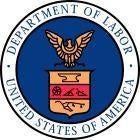As President Obama made clear when he pushed for successful passage of the Affordable Care Act (ACA), businesses that want to offer their employees health care benefits should have access to affordable options. Moreover, they should also be confident that the health care plans they work with are legitimate businesses. That’s why the Department of Labor is proposing new protections under the ACA to safeguard businesses participating in Multiple Employer Welfare Arrangements (MEWAs).
MEWAs can offer an affordable way for several employers – typically small businesses and sometimes self-employed individuals – to pool resources and provide health insurance for their workers and themselves. If not for options like these, some small employers might not be able to afford health care benefits for their workers. Unfortunately, the MEWA marketplace has been rife with mismanagement and even outright fraud. The department has encountered many cases where MEWAs ignored, or were not subject to, solvency and reserve requirements and were unable to pay claims despite collecting premiums from participants and employers. In more egregious cases, criminals purporting to provide legitimate health insurance stole from companies and workers by setting up fake arrangements, collecting premiums and embezzling the money.
Take for example a nationwide MEWA called TRG Health Plan. It left about $17.5 million in unpaid medical claims. Instead of paying medical claims, the MEWA operators diverted millions of dollars of plan assets for personal use. Another nationwide MEWA, Employers Mutual, left $27 million in unpaid benefits. A large percentage of the premiums paid to it were used improperly by the MEWA operators, including the purchase of residential real estate, a Jaguar automobile, and diamond jewelry.
Imagine if you or a family member were injured or became ill and then when the time came to pay the hospital bills, you found out that your health plan was nothing but a scam? What if when you contacted your so-called insurance provider you found out that their phone number was disconnected and they weren’t anywhere to be found? These are the stories that we at the department hear and act on, but often we don’t learn about a problem until there is no money left. This should never happen, and today’s proposal would give us important new tools to put an end to such cold- hearted fraud.
The proposal requires MEWAs to register with the Department prior to setting up shop. This will allow for federal and state regulators, plan sponsors and participants to gather important information about these entities BEFORE they offer coverage.
It also allows the department to seize the assets of a MEWA when there is probable cause that it is in a financially hazardous condition, such as not being able to pay claims. The proposal additionally provides the department the authority to issue a cease and desist order when it appears that fraud or other forms of abuse are being committed within a MEWA. This means that when someone is stealing premiums or seriously mismanaging plan assets, we can move more quickly to put a stop to it.
Health coverage is one of the most important benefits for workers. It can also be costly for employers, but those businesses that offer it to their workers know they are doing a good thing. It is only right that both workers and businesses have the protections they need to seek out affordable coverage without being ripped off in the process. The action we are beginning under the Affordable Care Act is in step with President Obama’s goal of ensuring all Americans have access to affordable and reliable health benefits.
We look forward to your input as we work to craft solid protections for small employers and their workers. Plan participants, small businesses, and other interested parties have until March 5, 2012 to provide their comments.
Phyllis C. Borzi is the assistant secretary of labor for the Employee Benefits Security Administration.


 />i
/>i
